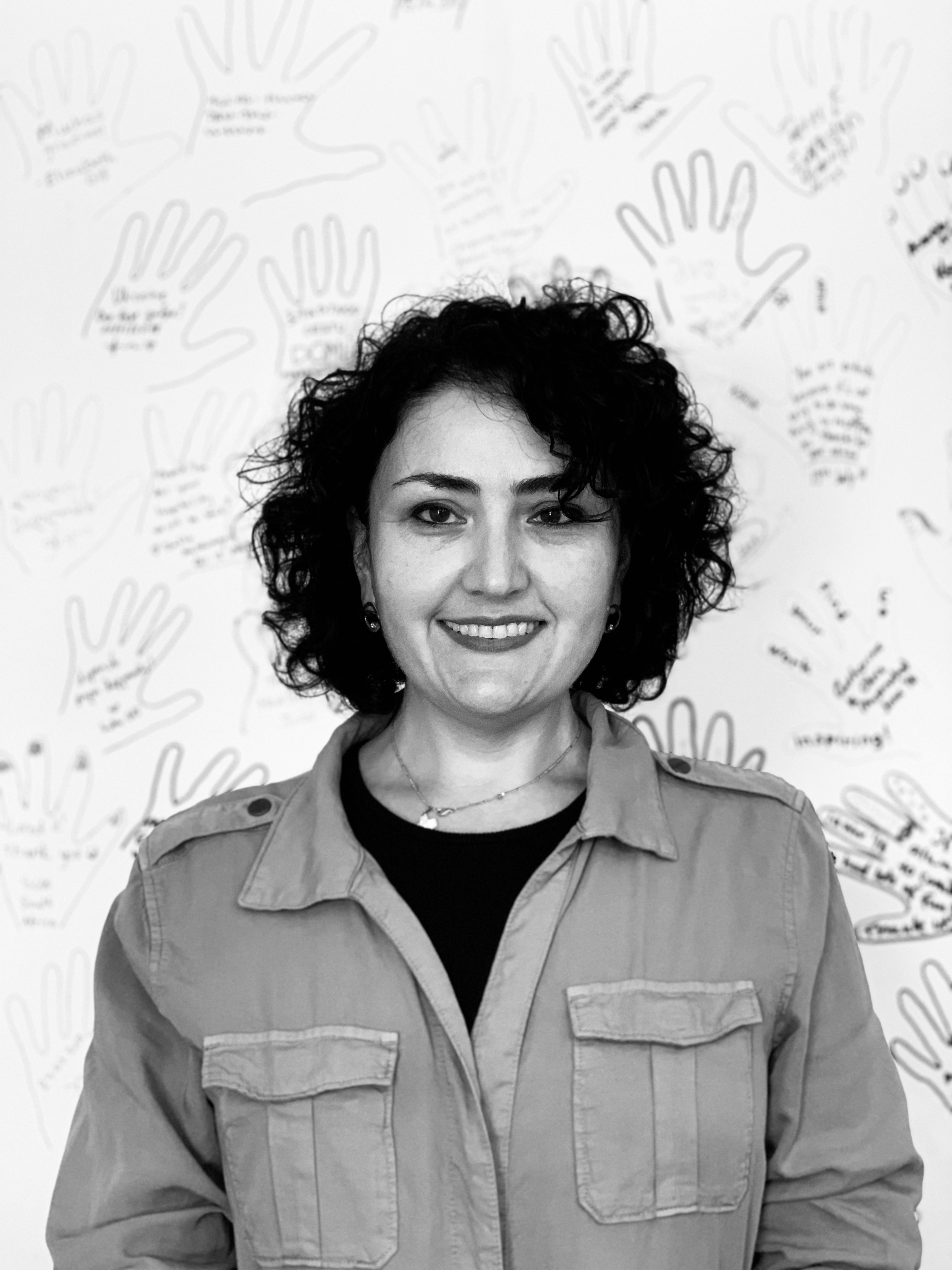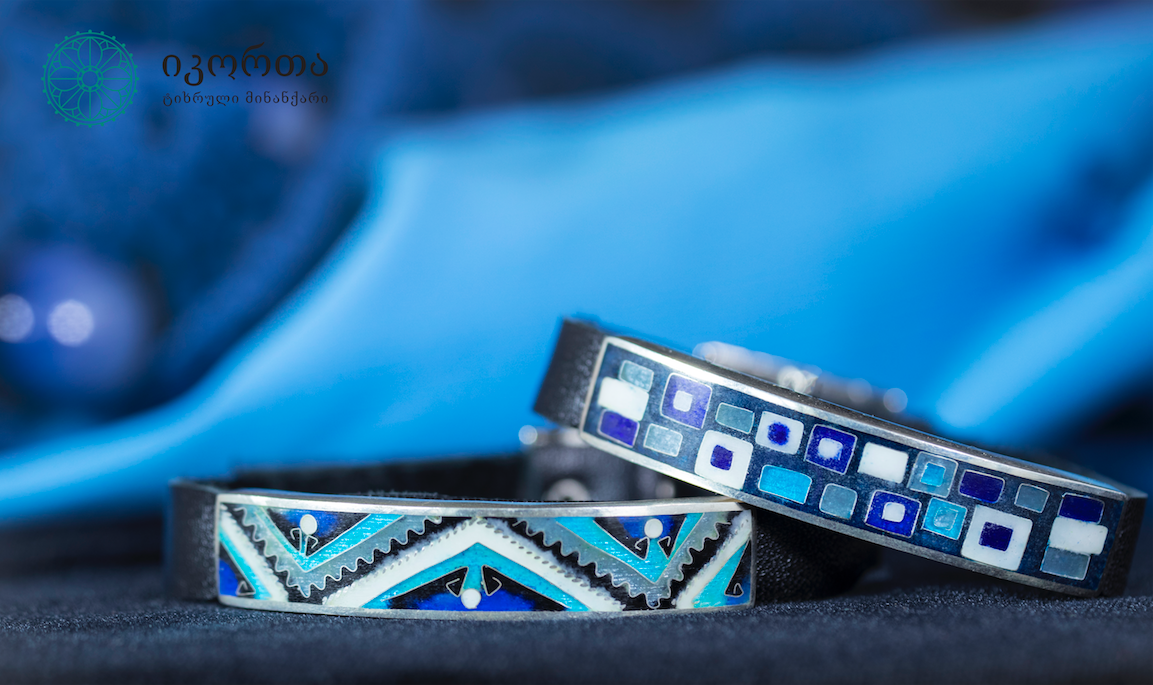Author: Tamara Kachakhidze
The fondest memories of childhood are occupied.
The house, the garden where everyone played, studied and loved one another are also occupied.
The only thing the enemy has not been able to occupy are the dreams. Dreams that have become reality.
And it will never be able to do that!

Nana Chkareuli is a refugee from Akhalgori who lives in Tserovani in an IDP settlement. A cultural theorist by profession, she now heads a non-governmental organization whose target audience is mainly internally displaced women and young people. The main goal of this organization is to create a more comfortable environment for women and youth and to promote professional development. The ngo is also active in strengthening civil and public organizations in the Mtskheta-Mtianeti region.
“I am a creative person. In all that I do, I try to invest all my energy and imagination. This habit comes from my childhood. From the time I dreamed about living in the mountains and opening a school for children, ” Nana Chkareuli tells us.
Although Nana has not been able to open a school yet, her work has always promoted motivating young people and fighting for a better future. Her NGO “For Better Future” seeks to promote the inclusion of IDPs, in particular young people and women in civil society, through various trainings and projects. It contributes to the integration process of IDPs.
“When we became refugees, I felt there was a need to do more for these people. More support and specific assistance had to be provided to IDPs from us. At first I couldn’t figure out how to get help, but after going through the CSRDG training, I realized that in our settlement it was necessary to develop in the direction of social enterprises, so I decided to create it myself. “
This is how the enamel jewelry company “Ikorta” was founded, which offers consumers silver jewelry, handmade accessories made with traditional Georgian techniques and textiles.
The starting capital of “Ikorta” was 700 euros. With this amount, planning for the future seemed unimaginable, but today there are 10 IDPs from Akhalgori and Liakhvi Gorge, including 9 women who work for the social workshop. Since 2016, “Ikorta” has been the founder of Alliance of Social Enterprises. Its products are featured in several souvenir shops, and with the reinvestment of profits from the sold merchandise, the social enterprise contributes to the country’s economic development.

What is the goal of “Ikorta”?
First of all, the popularization of Georgian culture but also supporting the employment of young people and women and the professional development of IDPs. Working in this area is a big challenge, as we have to create products that will be attractive to our local customers but also popular on the international market, because the local market is highly competitive and has many enamel jewelry and other handmade goods producers.
What distinguishes “Ikorta” from competitors?
Our strength is our employees. Prior to “Ikorta”, some of them worked in other professional directions. Now their profiles have changed, but the family environment and the love they have for their job is unchanged. This is not a routine job where you go at specific times. We have no designers, all of our work has its own author, whose vision, imagination and color are very much felt in our products. Our products are distinguished by their quality and theme. And the biggest happiness is when employees think they have the best job in the world.
Do you think the legislative framework needs to be refined in the direction of social entrepreneurship?
First of all, it is necessary to have an official definition of the term social entrepreneurship. The state declares that it supports the development of social entrepreneurship, but what social entrepreneurship entails is perceived individually in all structures and institutions.
It is very difficult to survive in this high competition in the context where society does not understand the role of social enterprises.
I think that the development of social entrepreneurship is very important for Georgia’s economic growth. We need to accelerate these changes.

What do you think is the power of us, women?
For me, as a woman, it was quite a difficult process. I had no knowledge of business, so everything that I did was guided by my NGO experience. I think my creative vision has helped me a lot, but most of all I want to thank the organizations that help empower women. Their advice and counseling helped us to take the first steps.
We, women, are more confident in what we do. This confidence is very important. But the most important thing is learning from our own mistakes.
What would you recommend to young people who see themselves in your field but find it difficult to take the first steps?
I would advise them to dream a lot. And then they must do everything possible to make those dreams come true. Nothing is impossible. We must give our dreams a chance. Most importantly, failure should not be a hindrance.
We must give our dreams a chance. Most importantly, failure should not be a hindrance.
In our case, the fact that we are internally displaced persons, I think, has united us, strengthened us, and given us the opportunity to overcome the obstacles that at first glance were impossible to overcome.
Some of the things that happen to us unexpectedly teach us whether we are capable of fighting, whether we have enough energy, whether we can believe our strengths and the fact that they cannot conquer us and make us fail. This is the only way we are going to survive and I am convinced that we will survive.
